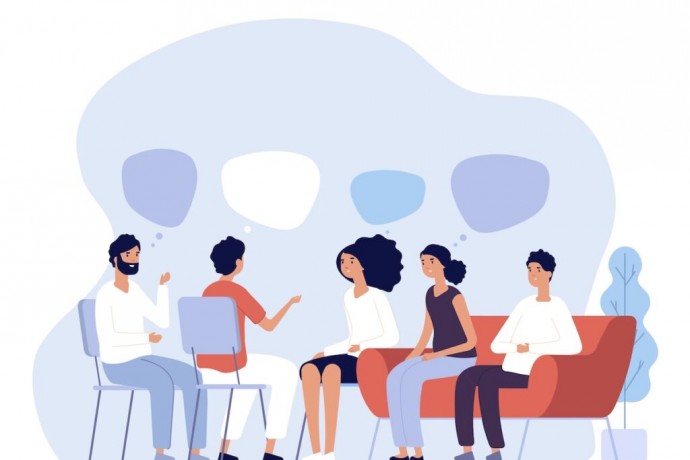Is Group Therapy Effective For Curing Addiction?

Group therapy has proved to be very effective when it comes to treating addiction. For most people, group therapy is the strongest part of any addiction recovery process. Connecting with other people going through the same challenges can help you deal with the isolation and shame that comes with addiction. Also, it helps to remind you that you are not the only person struggling with addiction problems.
Typically, group therapy provides a safe haven for the vulnerable. You get to see yourself in other people, and vice versa. Besides, you have the opportunity to work through your challenges and interpersonal skills, in addition to having a better way of communicating. Moreover, group therapy is an essential complement to family therapy and individual therapy, among other essential components of addiction therapy.
Group therapy for people with addiction problems is very common, and there are different types of settings and groups that you can attend. You can choose to attend your group therapy sessions in a hospital, community center, mental health clinic, or join a drug addiction treatment program. At times, group therapy can be used on its own as a part of a comprehensive addiction recovery plan. However, it’s important to note that group therapy is the most common type of therapy used in different addiction treatment plans.
How group therapy works
In addiction group therapy, an addiction therapist will lead a group of recovering addicts in guided discussions on different topics surrounding substance abuse and mental health. There is no definite number of people set for group therapy.
However, process groups can have fewer members or as many as 16 members. Psychoeducational groups, on the other hand, can have up to 24 members. Typically, the same group members meet with the same therapist or therapists regularly. This is key in any addiction recovery process since it helps to build trust among the group members.
The number of group therapy sessions required depends on the individual needs of a person. However, you should expect your group therapy sessions to last for at least 6 – 12 months. Also, the therapist leading the group session determines the format of the group therapy session. Most of the time, the therapist will highlight a certain subsistence addiction group topic, and then allow each member to share their individual struggles. Some therapists will keep the group session more focused, while others will allow an open discussion session.
What makes group therapy effective?
According to specialists from the iboga treatment center, Transcend clinic, recovering from drug addiction is not an easy task. The entire process can leave you feeling isolated and alienated. However, joining group therapy allows you to connect with other people who have gone through the same experience as you and are recovering from addiction. With group therapy, you will feel safer sharing your feelings and thoughts with people who understand how you feel.
Here are a few benefits of group therapy
You have a safety net
Group therapy allows you to access a network of peers recovering from addiction. While most people overlook this network, it plays an important part when it comes to long-term sobriety. Your confidence starts to grow when you meet the same group of people in every session.
Besides, if you have negative experiences of encounters with addiction triggers when alone, you can share them with your group. At the end of the day, it’s very comforting to know that addiction group therapy is the safest place where you can access the support you need while recovering from drug addiction.
You get the voice that you need
Addiction group therapy can assist to become aware of your current feelings and get the confidence to share them with other people. During the group sessions, counselors encourage people to voice their feelings, as this helps them to find confidence when recovering from addiction.
Support system
Although most people join addiction group therapy aiming to get support from others, they also provide support to the members of their group. In addiction group therapy, everyone gets the chance to share and discuss their issues, rather than getting advice from a counselor. This can help to build a sense of self-esteem, which you need during this period.
You interact with other people in better ways
Addiction group therapy allows you to realize how you relate with other people. Please note how you relate with other members of the therapy group reflects how you interact with your family and friends. So, joining an addiction group therapy can help you better your relationships.
Bottom Line
Group therapy is as effective as individual therapy. However, addiction group therapy comes with the extra benefits discussed above. This makes it one of the best strategies to use when recovering from addiction. Besides, recovering addicts are encouraged to be honest and open during their group therapy sessions. That means you must be willing to share your feelings and thoughts whenever they come up during your group session. Besides, you should always expect feedback from other members of your group, as this will help you to overcome your fears about how others see you. Now, this is how you make your group therapy sessions effective.

